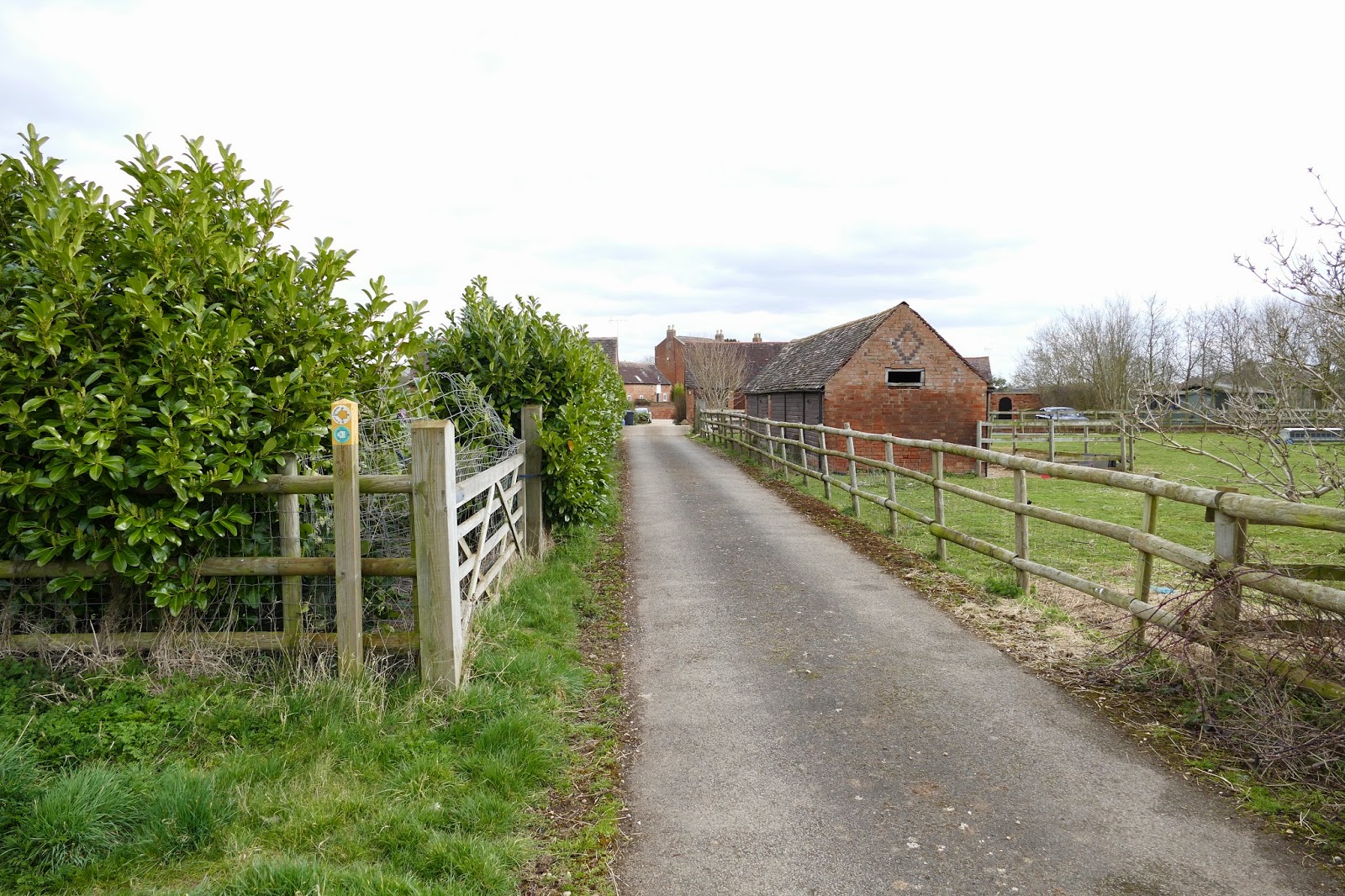 I like walking over English farm land, staying
overnight in English farm houses, and eating English farm food – but I don’t
think that I would like English farm life.
I like walking over English farm land, staying
overnight in English farm houses, and eating English farm food – but I don’t
think that I would like English farm life. English farmers have to fight ancient ghosts and modern demons.
Listening to the folks at the Farm Stays on our Shakespeare’s Way walk and later in pubs,
I heard the usual lamentations. The kind
my family likes to recite on the porches facing rolling fields in Central
Ontario. But with the West Midlands
accent.
 The Warwickshire men seem to like the farming - and
don’t complain about long days, hard work, or the weather - but about all the “booolshut
and guhvurrrrmunt burrrrackrasssy !”
The Warwickshire men seem to like the farming - and
don’t complain about long days, hard work, or the weather - but about all the “booolshut
and guhvurrrrmunt burrrrackrasssy !”
Canada and most other countries also like to test
the toughness of their farmers by getting them pull wagonloads of paper behind
them. Not just for the taxman, but also
for inspections of every kind, environmental regulations, land use laws, crop
management, and animal hygiene. I’m not
sure if, like Britain, we have “agricultural waste exemption forms,” “applications
for water abstraction in trickle drip irrigation” or an “annual allergen
undertaking” in Canada, but I am sure we have our obfuscating, demonic equivalents.
The Romans liked their paperwork --- well ---
their chiseled stones, wall paintings, papyrus, and parchmentwork. So, perhaps, it’s fitting that their legacy
in Britain should be that wagonload of bureaucratic requirements for anyone
considering innovative land use, new construction, or additions, or just trying
to “get the Hell out of farming” by selling off the land for condos. According to our Farm Stay hosts, you also have to endure a
tortuous archaeological assessment - just
in case some Roman official was buried under your chicken coop two thousand
years ago.
We nodded over our eggs and blood pudding and
agreed this archaeological stuff might make sense in places like London,
Colchester, or Bath – but was silly out
here.
 But an hour later, leaving Newbold on Stour and heading back toward the main trails
by Halford, I checked the guide book and noted that we had to cross the busy A429
highway. The book mentioned in passing
that it lies on top of the Fosse Way, the ancient roadway that linked Exeter in
the south to Lincolnshire in Roman times.
But an hour later, leaving Newbold on Stour and heading back toward the main trails
by Halford, I checked the guide book and noted that we had to cross the busy A429
highway. The book mentioned in passing
that it lies on top of the Fosse Way, the ancient roadway that linked Exeter in
the south to Lincolnshire in Roman times. I looked around for the ghosts of Roman soldiers and the shadows of government bureaucrats.
